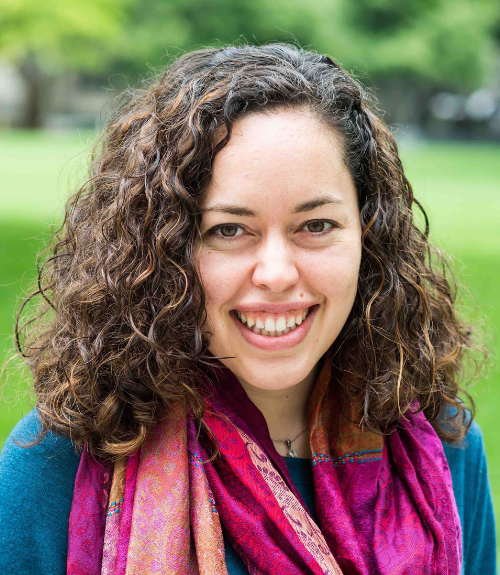Tiziana Smith: MIT Alumni Tackling Food and Water Challenges After Graduation
PhD ’18 | Water Resources Specialist at the World Bank

Tiziana Smith, a 2018 MIT graduate who earned her PhD in Civil and Environmental Engineering focusing on water resources management, now works on dam safety with government officials in India. After graduating, Tiziana has been doing this work as a water resources specialist for the World Bank through their Young Professionals Program.
When the COVID-19 outbreak began leading to border closures in March, Tiziana was on a three-month assignment in Delhi working closely with governmental programs to rehabilitate dam infrastructures across the country. “We are trying to ensure that the dams are both physically safe as far as infrastructure goes, but also making sure that they are operated in a safe way,” Tiziana tells me. With over five thousand large dams in India, her team is acutely aware of the risks of flooding for downstream communities. “Even in the US flooding from surprisingly recent dam breaks has caused severe damage,” she noted, stressing that dam failures are problems that threaten downstream communities and ecosystems all over the world.
For her master’s and doctoral work in the Department of Civil and Environmental Engineering at MIT under Dennis McLaughlin, the H.M. King Bhumibol Professor in the Department of Civil and Environmental Engineering, Tiziana developed a model that uses optimization to allocate limited land and water resources to meet different sustainability and food security objectives. This model allows the exploration of tradeoffs between sustainability, food security, and water security. The case study for her research was China, where the transition to more meat-intensive diets places additional demands on natural resources. Towards the end of her PhD, through a J-WAFS travel grant in 2018, Tiziana was able to explore other water sector professional paths at Stockholm World Water Week in 2018. “My experience really opened my eyes to the world of water,” she told me. The J-WAFS-supported experience allowed her to explore “the political world of water,” a part of the water resources management community that she had not been exposed to through her research. “It gave me a better understanding of what the water landscape looks like, who other key stakeholders are and the various ways that water issues are being addressed beyond the field of science and modeling.”
Expansion of Tiziana’s view of global water issues has continued through her work at the World Bank. The model she developed as an MIT student had made simple assumptions about how water flows could be routed through the system, “but [I] never had to really think about large dam infrastructures and the important water management capabilities that they enable to control water usage around the world,” she said.
In addition to having to think more deeply about the role of infrastructure in managing water systems, Tiziana has also become more deeply engaged in the political, legislative and regulatory levels of water and dam management. As part of her job she has also works closely with Indian government officials who are developing legislation and policies that govern water management, such a proposed new Dam Safety Bill for the country. “For me, this is a really exciting part of the job,” Tiziana explains, “because it’s an opportunity to not only ‘fix the pipes’ but to fix the system that fixes the pipes.”
In many ways, achieving universal water access, safety, and equity around the world cannot rely only on technological advancements; there must be dramatic system changes too. Her continued policy work on changing dam safety regulations in India has led her to turn a more reflective eye the relationship between water policies and social justice as well. In light of recent outcries and social unrest around issues of systemic racial injustice in the US, Tiziana and I also discussed the role that environmental scientists and engineers like herself must play in addressing the problems of racial inequity. Research has shown that minority groups in the United States and around the world are disproportionately affected by environmental disasters such as floods and face higher risks of water and air pollution in their communities. “I hope that what the environmental science and engineering community can take away from these protests is that we can be more vocal about how our work is directly related to issues of systemic racism and oppression and that we can consciously contribute to changing that through our work.”
Want to find out more about MIT alumni working in food and water? Click here.